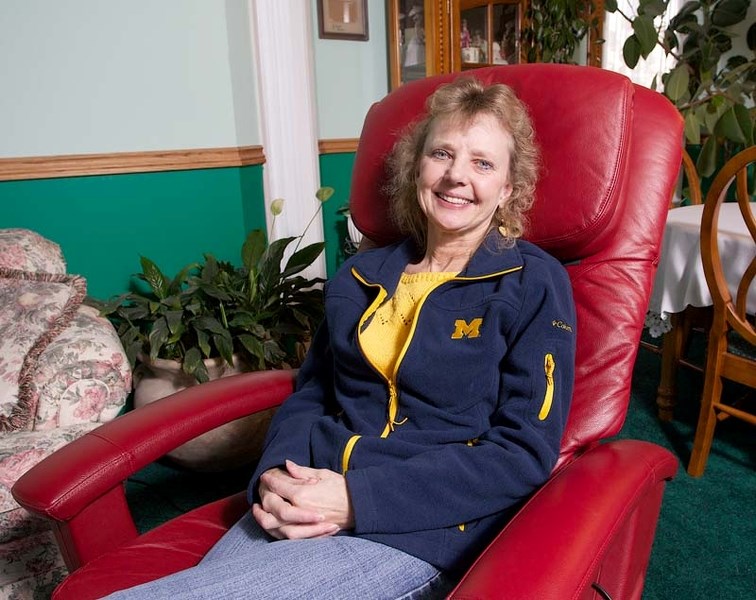A local advocate for a controversial multiple sclerosis (MS) treatment continues to stick to her guns despite mounting research against it.
St. Albert resident Connie Beaudette has gone abroad twice for liberation therapy, a vein-opening treatment based on Italian doctor Paolo Zamboni’s theory that blocked or narrowed veins in the head and neck is one of the primary causes of MS.
Zamboni coined the condition chronic cerebrospinal venous insufficiency (CCSVI) in 2008.
Researchers have been unable to replicate his findings.
A study by a research group from the University of British Columbia and the University of Saskatchewan recently published in the British medical journal The Lancet, has added to the evidence which disproves the link between CCSVI and MS.
After testing MS patients, their unaffected siblings and a control group, the study found there was no significant difference between the rates of vein narrowing in people with MS and those without.
It showed that CCSVI occurs rarely in people with MS and in healthy people, with just one of the 65 MS patients testing positive for the condition.
The paper also stated that more than 50 per cent venous narrowing was high in the healthy control group – a finding that has not been previously reported – and is therefore not anatomically unique to MS.
The findings are corroborated by a paper released this summer by researchers from McMaster University. The study found there was no evidence of CCSVI in a sample of 100 MS patients and 100 healthy people.
Despite the studies’ conclusions, eight-year MS survivor Beaudette is willing to go for another treatment.
“They tell you it’s not a cure but it helps and it slows the progression,” she said of the two angioplasty procedures that have opened up her veins using a balloon type device or the insertion of stents.
The 57-year-old travelled to Cabo San Lucas, Mexico in 2010 for liberation therapy and to Costa Rica in 2012 after she felt some of the disease’s symptoms coming back, such as loss of balance and cold feet.
Beaudette explained she was awake for the first treatment.
“You could feel the catheter going around your ears and you feel like your ears are going to blow. (It was) so awful,” she remarked.
“But it was night and day after. My husband said he thought he got his wife back.”
Beaudette said her feet were immediately warm again and she had regained her balance. But the after-effects of the second procedure weren’t as prominent.
“My husband Ron feels the results were way better the first time so we want to go back to Mexico,” she said, acknowledging that the treatment is not a cure, but for her it has slowed down the progression of the disease.
Having been diagnosed eight years ago, Beaudette prides herself on still being able to walk, shower, dress and eat by herself and climb the 14 stairs to her bedroom.
So far she has spent more than $60,000 on liberation therapy abroad.
The treatment is not approved by Health Canada.
A $6 million national study announced last September is currently underway to examine how angioplasty to open blocked veins alleviates symptoms of MS.
An observational study led by researchers from the University of Calgary and the University of Alberta was launched in 2011 in Alberta to determine the safety and impact of venous procedures for people with MS.




